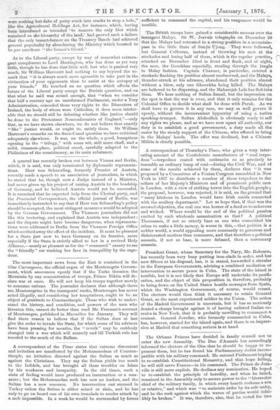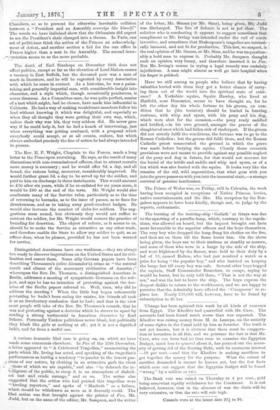The Orleans Princes have decided in family council not to
enter the new Assembly. The Due d'Aumale has accordingly informed the electors of the Oise that he should be happy to re- present them, but he has found his Parliamentary duties incom- patible with his military command. He entered Parliament hoping to re-establish Constitutional Monarchy, and that hope failing, he will still serve France—in his command. The Prince de Join- vine is still more explicit. He declines any nomination. He hoped to re-establish the principle of heredity, and when he failed, remained in the Assembly only to secure power to the " hierarchic chief of the military family, in which every hearth reckons a son or relative," and which was " to maintain order by its sole unity, and be the rock against which the waves of parties would infal- libly be broken." It was, therefore, also, that he voted for two Chambers, so as to prevent the otherwise inevitable collision between a "President and an Assembly sovereign like himself." The words we have italicised show that the Orleanists did expect to see the President's chair changed into a throne. In Paris, one set of politicians think the action of the Princes an acknowledg- ment of defeat, and another section a bid for the one office in France higher than a seat in the Assembly. The second inter-
--^--rtretation seems to us the more probable.











































 Previous page
Previous page